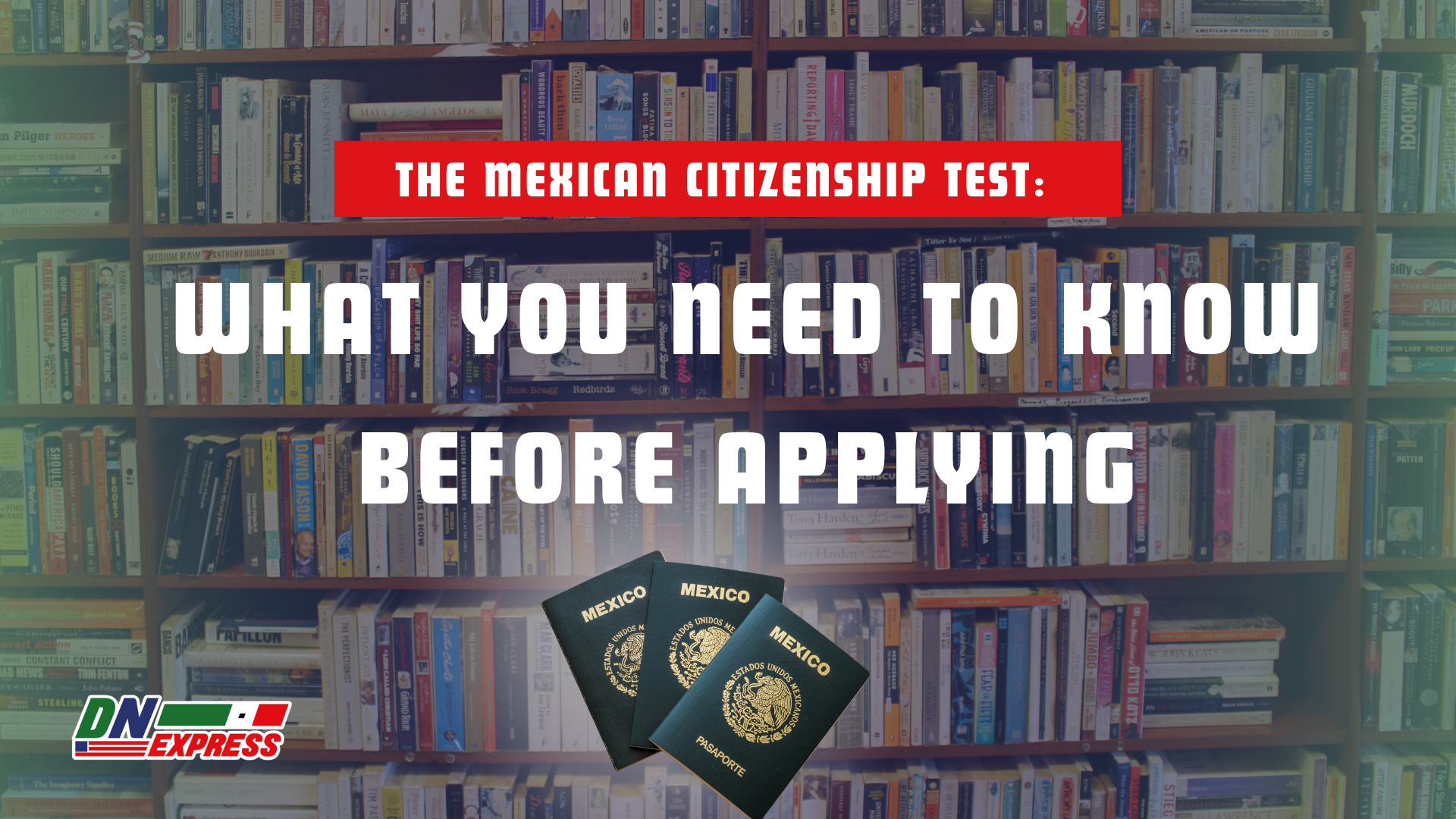
Thinking of becoming a Mexican citizen?
Yes, there is a citizenship test for Mexico, and it’s mandatory for most applicants.
You’ll be tested on history, culture, geography, and language. But not everyone needs to take it, and the process depends on your specific situation.
Whether you’re married to a Mexican, a long-time resident, or claiming citizenship through ancestry, the rules and requirements for naturalization (including the test) vary.
Some applicants are exempt. Others struggle with obscure trivia, outdated study materials, and confusing paperwork. The test is passable, but only if you’re well-prepared.
We offer a complete service, guidance, translations, and one-on-one support to help you pass the exam, collect your documents, and claim your Mexican passport or dual nationality without the bureaucratic headache.
Do You Need to Take the Mexican Citizenship Test?
Yes, most applicants for Mexican citizenship by naturalization are required to take a citizenship test.
This includes a written exam on Mexican culture and history and an oral Spanish language test.
These are administered by the Secretaría de Relaciones Exteriores (SRE) as part of the naturalization process.
But not everyone has to take it.
The requirement depends on how you're applying for citizenship and your specific circumstances:
- Long-term residents (those who’ve lived legally in Mexico for 5+ years) must take both the culture and Spanish exams.
- Spouses of Mexican citizens applying after 2 years of residency are also required to test, unless exempt.
- Refugees and humanitarian cases recognized by COMAR are exempt from the culture/history test but must still pass the Spanish oral exam.
- Minors under 18 and seniors over 60 are also exempt from the written portion, but not the Spanish exam.
- Children of Mexican citizens born abroad are typically eligible for citizenship by birth and do not take any test.
If you're applying through naturalization, chances are you'll need to pass a test. But there are key exemptions, and we help you identify where you fall so you can avoid stress and study smarter.
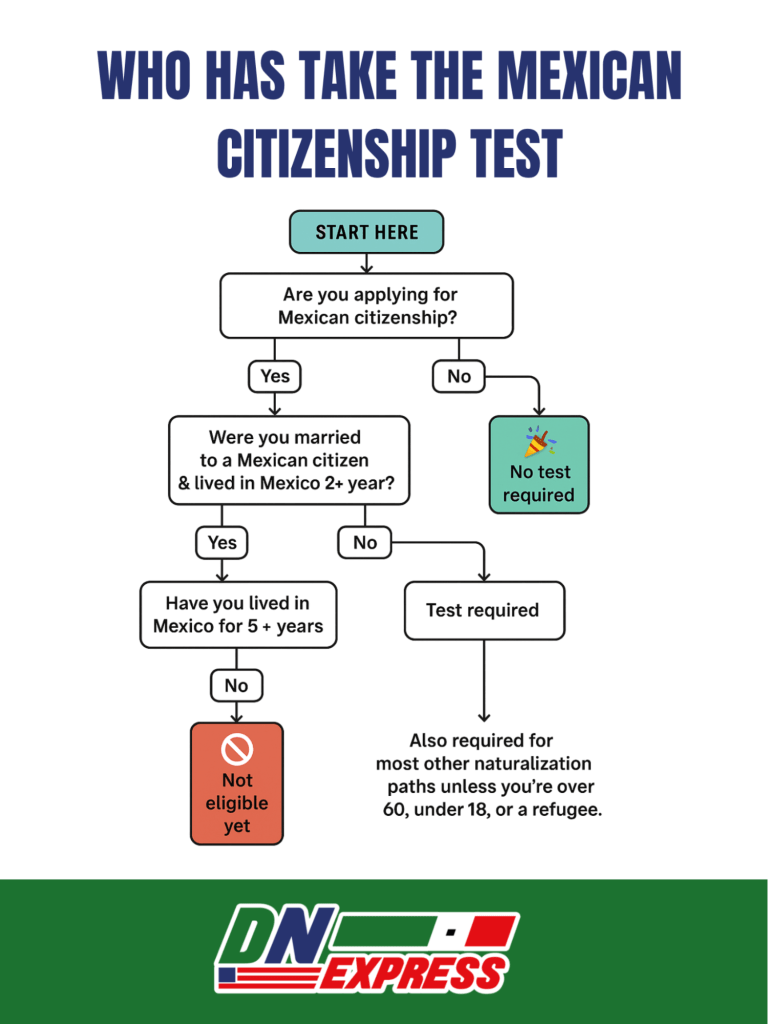
Citizenship Requirements Based on Your Situation
The path to Mexican citizenship, and whether or not you need to take a test, depends heavily on how you qualify. Below are the five most common applicant types, along with the rules that apply to each one:
Foreigners Married to Mexican Citizens
If you’re married to a Mexican national, and maybe have a temporary resident visa, you can apply for citizenship after just two years of legal residency in Mexico. However:
- You’ll still need to take the citizenship test unless you're over 60, under 18, or have a qualifying disability.
- You must remain married and living together at the time of application.
Pro Tip: The test for spouses is the same as for all other applicants, expect questions on history, government, and oral Spanish.
Children of Mexican Nationals Born Abroad
If at least one of your parents is Mexican by birth, you’re eligible for citizenship by birth, not naturalization.
- No test, no residency requirement, and no Spanish exam are needed.
- You can apply through a Mexican consulate or at the Civil Registry in Mexico.
This is the easiest path to citizenship and a popular option for U.S.-born children of Mexican immigrants.
Long-Term Residents
Foreign nationals who have legally lived in Mexico for five consecutive years can apply for citizenship.
- You’ll need to prove physical presence (at least 18 months in the last two years).
- Both the culture/history test and Spanish oral exam are required unless you qualify for an exemption.
Reddit users report that this group often underestimates the difficulty of the test, especially if they haven’t formally studied Mexican history.
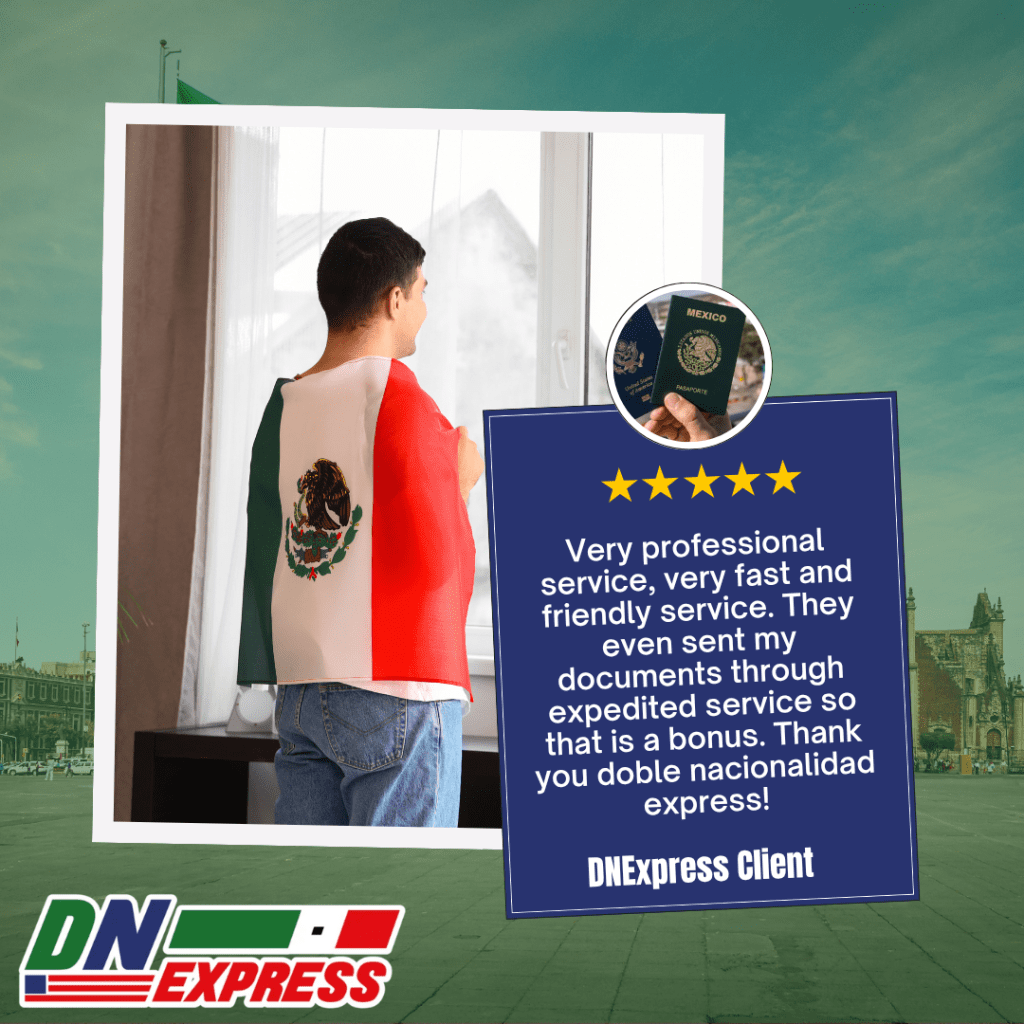
Naturalized Applicants via Residency
This is the standard naturalization path for people without family ties or marriage.
- You must demonstrate language fluency and cultural integration.
- Expect to take both tests and submit detailed documents: birth certificates, police records, and immigration history.
- It often takes 6–12 months for approval and includes biometrics and interviews at the SRE.
Many applicants are surprised by unexpected test topics, like food, anthem lyrics, and geography.
People with Mexican Grandparents or Heritage
If you have a Mexican grandparent (or in some cases, great-grandparent), you may be eligible for dual citizenship by descent.
- The requirements vary depending on your birth country and your parents’ registration status.
- In many cases, you can bypass the test entirely, especially if your parent was registered as Mexican citizen.
Be prepared to submit extra documentation, like apostille birth certificates and translations, to prove your lineage.
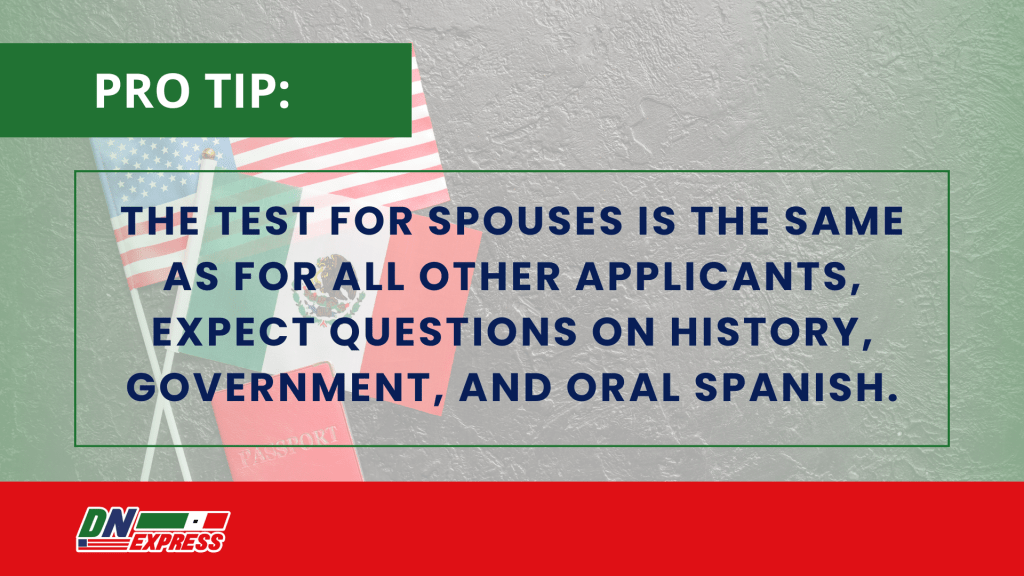
Key Facts About the Mexican Citizenship Test
If you're applying for Mexican citizenship through naturalization, you’ll most likely have to take a test, and it’s not as easy as many people expect.
Is there a citizenship test for Mexico?
Yes.
The Mexican citizenship test is mandatory for most adult applicants seeking naturalization, especially those applying through residency or marriage.
Some exemptions exist for age, disability, or refugee status, but the majority of applicants are required to take it.
What is the test like?
The test consists of two parts:
- Written Exam (History & Culture):
You’ll answer 10 multiple choice questions focused on topics like:- Pre-Hispanic civilizations
- Mexican independence and revolution
- Geography (e.g., state capitals)
- Government structure
- National holidays, traditional foods, and even pop culture
- Spanish Oral Exam:
You’ll be asked to:- Read a short paragraph out loud
- Describe a picture using grammatically correct Spanish
- Possibly answer follow-up questions or complete a short writing task
Many Reddit users report that the oral exam can be more nerve-wracking than the written portion, especially if you’re not used to speaking Spanish in formal settings.
How hard is the test?
According to multiple Reddit threads and user stories, the test is harder than people expect:
- Questions may cover obscure facts like regional foods, anthem lyrics, or famous artists.
- There’s no official question bank, so test prep can feel like a guessing game.
- Some users claim that failing one part of a multipart question results in a total miss, making the grading system feel unforgiving.
People fluent in Spanish and well-versed in history still report struggling due to unclear expectations and ambiguous questions.
What happens if I fail?
- You can usually retake the test once after a waiting period.
- Many describe the experience as confusing and demoralizing, with no feedback on what they got wrong.
- However, the timeline is slow. Some users waited 3–6 months to reschedule.
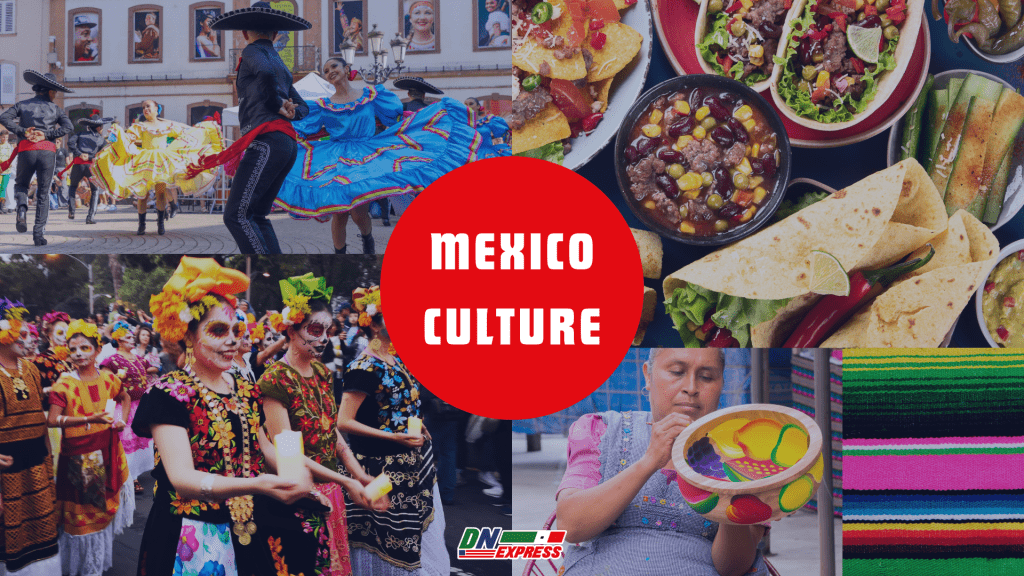
Unique Challenges You Won’t Read on Government Websites
Official sites make the Mexican citizenship test sound straightforward, but applicants tell a different story. If you’re relying solely on government resources, you’re likely walking in blind.
Some facts.
1. Study Materials Are Outdated and Overwhelming
The SRE recommends books like Nueva Historia Mínima de México, a dense, 300-page academic text.
Applicants say it’s impractical for busy adults, and doesn’t reflect the actual test questions.
2. Government Resource Links Are Broken
Many applicants tell us that they often get error messages when they try to use the official PDFs and preparation materials.
There’s no centralized or maintained study portal, and no way to confirm if you’re studying the right content.
3. Flashcards or Shortcuts? They Don’t Exist
Despite repeated requests in forums, no official flashcard sets exist.
Many applicants say they resorted to creating their own or studied blindly, guessing at what might appear.
4. The Oral Exam Feels Subjective
Several fluent Spanish speakers reported failing the oral portion of the test, without clear explanations.
Some say they were marked down for minor pronunciation issues or speaking too casually.
There’s no public scoring rubric, making it hard to know what examiners are looking for.
5. You Might Get Tested on… Tacos?
Other people claim they were asked questions about:
- Regional dishes (like mole or cochinita pibil)
- Hymn lyrics (lines from the Himno Nacional)
- Pop culture and geography
This frustrates many who spend weeks memorizing dates from the independence war, only to be asked about state slogans or festivals.
6. Document Issues Can Derail Everything
Applicants with slightly different names on their passport vs. birth certificate (e.g., missing middle names or reversed surnames) report major delays.
You’ll likely need an affidavit from your consulate to clarify mismatches.
These issues aren’t listed on SRE websites, but they’re very real for those who’ve gone through the process.
Up next, we’ll look at why people take the test at all, and the surprising benefits of Mexican citizenship that make the effort worthwhile.
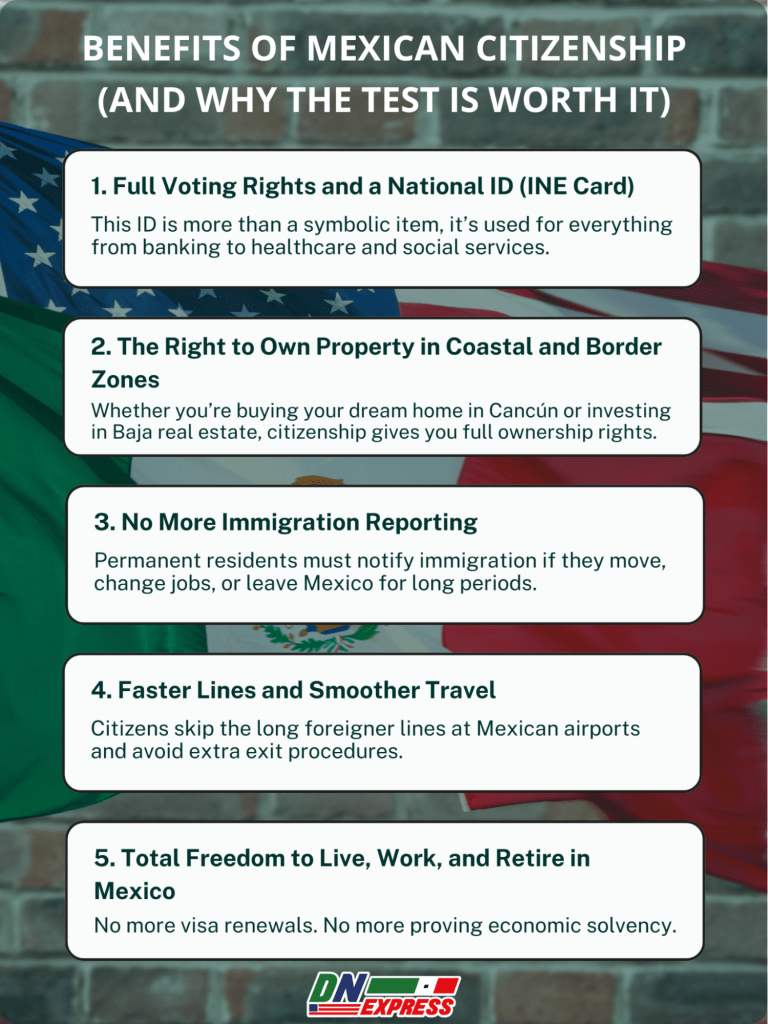
Benefits of Mexican Citizenship (and Why the Test Is Worth It)
Yes, the Mexican citizenship test can be stressful.
The study materials are confusing, and the process is not always transparent. But for many applicants, the benefits of becoming a Mexican citizen far outweigh the hassle, and explain why thousands take the plunge every year.
Here’s what you gain once you’re officially naturalized:
Full Voting Rights and a National ID (INE Card)
Citizens can vote in federal, state, and local elections, and access all government services that require the INE (Instituto Nacional Electoral) card.
This ID is more than a symbolic item, it’s used for everything from banking to healthcare and social services.
The Right to Own Property in Coastal and Border Zones
Foreigners must use a fideicomiso (bank trust) to buy property near the coast or borders.
But Mexican citizens can own it directly, avoiding annual fees and legal red tape.
Whether you’re buying your dream home in Cancún or investing in Baja real estate, citizenship gives you full ownership rights.
No More Immigration Reporting
Permanent residents must notify immigration if they move, change jobs, or leave Mexico for long periods.
As a citizen?
You’re free to come and go as you please, no paperwork, no check-ins.
Faster Lines and Smoother Travel
Citizens skip the long foreigner lines at Mexican airports and avoid extra exit procedures.
You can use the Mexican passport, which provides visa-free access to over 150 countries and preferential treatment in Latin America.
Total Freedom to Live, Work, and Retire in Mexico
No more visa renewals. No more proving economic solvency.
As a citizen, you’re fully protected under Mexican law, with the right to live, work, start a business, and retire without restrictions.
In short, citizenship unlocks a life of freedom and stability in Mexico, and once you pass the test, you’ll never have to worry about renewing your residency again.
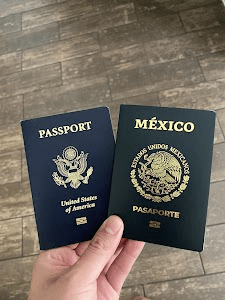
Naturalization vs. Citizenship, what’s the difference?
A frequent source of confusion in this process is the difference between citizenship y naturalization. Let’s see:
Citizenship
Citizenship is the legal recognition that you are a full member of the Mexican nation.
As a citizen, you’re entitled to all rights and protections under Mexican law, including the right to vote, own property, work freely, and apply for a passport.
Naturalization
Naturalization is a process, a specific legal pathway that allows foreigners to become Mexican citizens.
It typically requires:
- A certain number of years of residency (2–5 depending on your situation)
- A clean legal record
- Passing a culture/history test y Spanish language exam
- Submitting documents and attending interviews at the SRE
If you're applying through marriage, long-term residency, or special contributions to Mexico, you're following the naturalization path.

Citizenship by Birth: No Naturalization Needed
If you were:
- Born in Mexico
- Born abroad to at least one Mexican parent
- Have Mexican parents who registered you at a consulate
…then you’re already a citizen by birth, no tests, no residency, and no naturalization process required.
This is the fastest and simplest route to Mexican citizenship, especially for people of Mexican descent born in the U.S. or elsewhere.
Understanding this distinction is fundamental before you apply, because it determines what paperwork you'll need, whether you’ll face the citizenship test, and how long the process will take.
Should You Hire Doble Nacionalidad Express?
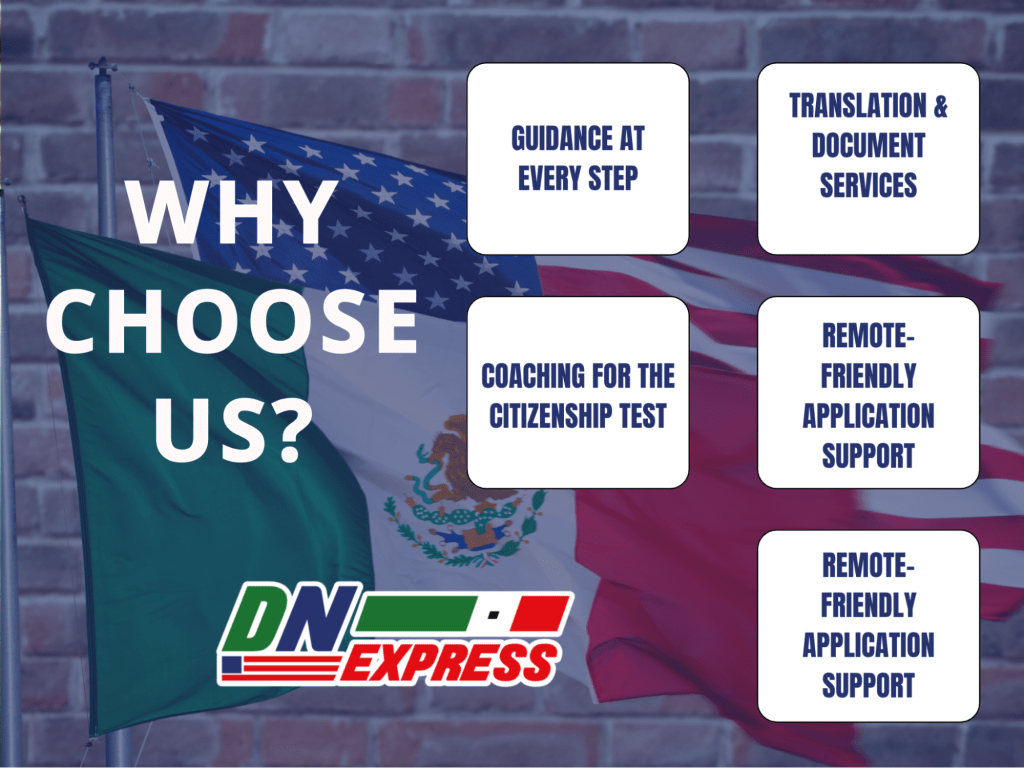
If you’re serious about becoming a Mexican citizen, whether through naturalization or by reclaiming your family’s heritage, we can make the process dramatically easier, faster, and less stressful.
Why choose us?
We are not a generic immigration firm. They specialize exclusively in Mexican citizenship and dual nationality, with deep knowledge of the process, paperwork, and exam preparation.
Here’s what sets them apart:
- Guidance at Every Step
We don’t just tell you what forms to fill, we do the prep with you, ensuring no missing details that could delay your application. - Translation & Document Services
Birth certificates, affidavits, apostilles, and more, all handled in-house, including notarized Spanish translations. - Coaching for the Citizenship Test
From flashcards to live practice sessions, we can help you study what actually shows up on the test, no guesswork required. - Remote-Friendly Application Support
Many clients complete the process entirely online, avoiding long waits at consulates or confusing appointment systems. - Human Support (No Chatbots, No Bureaucratic Loops)
We offer personalized answers, tailored timelines, and bilingual assistance, something government websites can’t match.
The Downsides of Doing It Yourself
While it’s legally possible to apply on your own, here’s what you’re up against:
- Outdated or Broken Government Resources
Many links lead to missing files, outdated exam guides, or contradictory instructions. - No Official Practice Materials
There’s no official study guide or question bank, so you're left guessing what’s on the test. - Document Mismatches = Major Delays
A small error, like a misspelled name or missing apostille, can cause your file to be rejected or stalled for months. - No Room for Error
If you fail a test or forget a document, you may have to start the process over, wasting valuable time and energy.

Final Tips for Passing the Ciudadanía Mexicana Test
Now that you know what’s on the test, and the potential pitfalls, let’s talk strategy.
You don’t need to become a historian or grammar genius to pass, but you do need to prepare smart.
Here’s how successful applicants are studying in 2025:
1. Skip the 300-Page Government Books
Unless you enjoy academic reading in Spanish, avoid the Nueva Historia Mínima de México.
Instead, grab 6th-grade Mexican history and civics textbooks, they’re clear, accurate, and written for learners.
2. Memorize the Must-Knows
The test draws from a wide pool, but a few topics show up often:
- State capitals and geographic regions
- Key figures like Benito Juárez, Sor Juana Inés de la Cruz, and Emiliano Zapata
- Lines from the national anthem (Himno Nacional)
- Major dates from independence and revolution history
Flashcards help, especially if you're pressed for time.
3. Practice the Spanish Oral Portion Aloud
Reading silently isn’t enough. The oral exam requires you to:
- Read a paragraph with correct pronunciation
- Describe a picture in complete, grammatically accurate sentences
Use language apps or record yourself to practice fluency. The goal isn’t speed, it’s clarity.
4. Join a Study Group
Many Reddit users and expats on Discord have created informal study circles.
You can share tips, ask about recent test questions, and get moral support from others going through the same thing.
Look for communities under tags like /r/mexicoexpats or “Mexican naturalization study group.”
Also can visit websites with info about migration history.
5. Hire a Consultant if You Want to Get It Right the First Time
This test isn't impossible, but it’s also not designed for foreigners to pass easily without help.
A service like ours can help you with:
- What to study (and what to skip)
- How to fix paperwork issues
- Where to apply for the fastest processing time
- And how to pass both the written and oral exams on your first try
Passing the Mexican citizenship test is completely achievable, and the reward is huge, a second passport, the ability to vote, full ownership rights, and peace of mind for life in Mexico.

Start Your Journey to Mexican Citizenship Now
Whether you're building a life in Mexico or with a mexican, claiming your roots, or planning your retirement, Mexican citizenship can open doors.
We simplify the process, so you can focus on your future, not your paperwork
Don’t risk delays, rejections, or wasted months. Get it done right the first time.
Reserve una Consulta Gratuita now, or Message Us on WhatsApp, it will be a pleasure to help you on the road to your dual nationality.
FAQs and Reader Concerns (Integrated Naturally)
Still have questions about the Mexican citizenship process?
Below are some of the most frequent questions shared by applicants, along with clear answers to help you feel confident moving forward.
Do I have to take a test if I’m over 60?
Maybe not.
Applicants over the age of 60 are typically exempt from the written culture and history test.
However, you’ll still need to pass the Spanish oral exam, which includes reading a short paragraph and describing a picture aloud.
Fluent speakers usually do fine, even slight missteps in grammar or pronunciation can lead to failure.
This is where personalized coaching or companion service really helps.
Is there a difference between applying from abroad vs. inside Mexico?
Yes.
In the past, you had to apply in person through SRE offices in Mexico. But now, some consulates abroad allow remote processing, including online document submissions and digital appointments.
That said, not all locations support this yet, and procedures vary widely between embassies.
We can help you identify the fastest, most reliable route depending on where you live, and guide you through consular quirks you might otherwise miss.
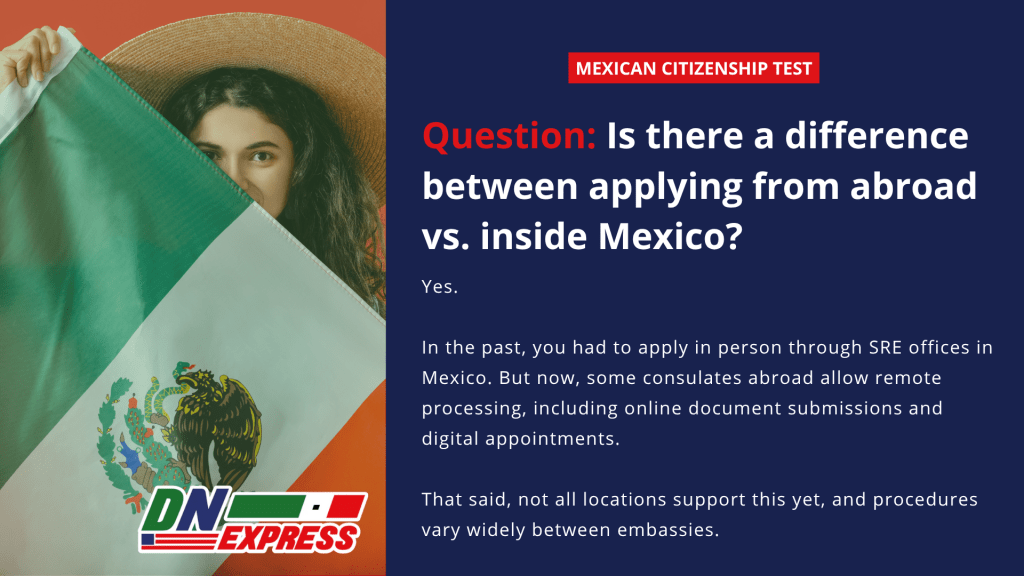
What if I’ve lived abroad for 5 years after becoming a citizen?
This is one of the biggest concerns among naturalized citizens, losing their status.
According to Mexican law, if you obtained citizenship through naturalization (not by birth or ancestry), and you live outside of Mexico for more than five consecutive years, you could legally forfeit your citizenship.
It’s rarely enforced, but it’s a rule you need to know.
If you plan to maintain dual nationality while living abroad, you should speak with professionals to keep your status secure.
With so many nuances in eligibility, testing, and maintenance of your rights, it’s no wonder many people turn to professionals to navigate the process.
Contact us, Schedule a Free Case Review o Message Us on WhatsApp.



